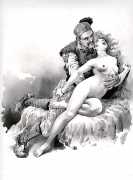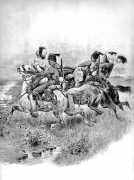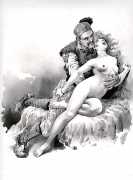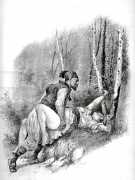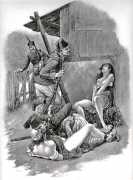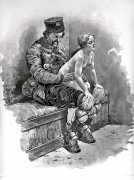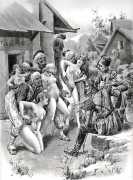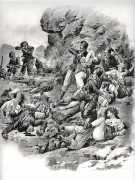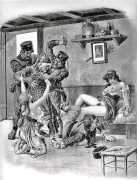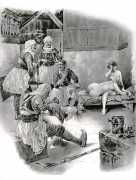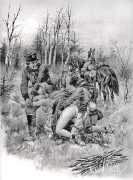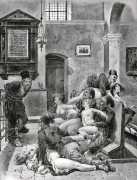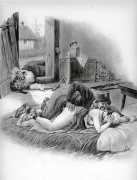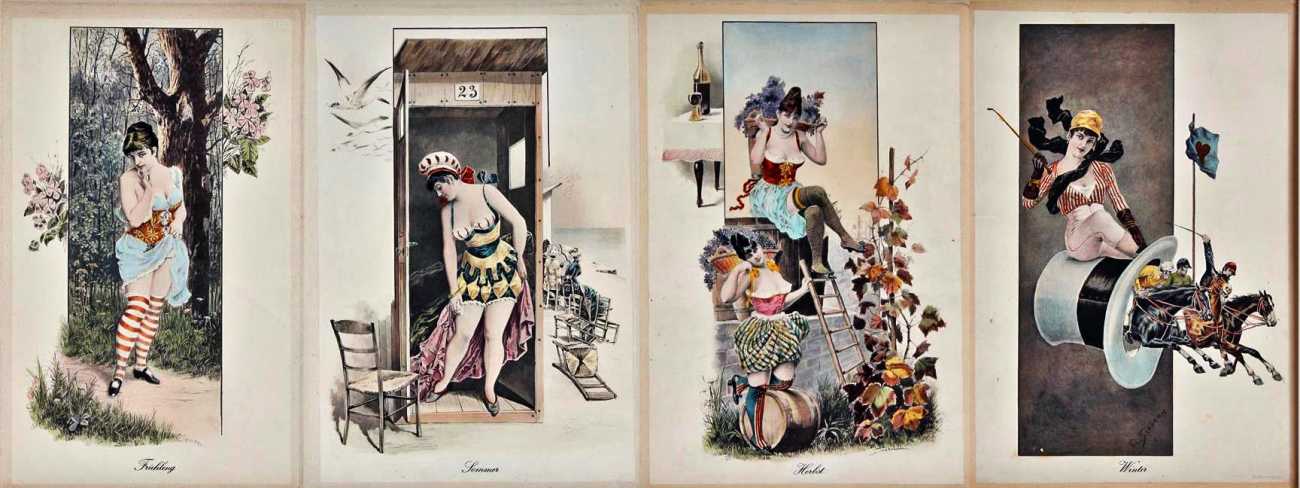
Were it not for a sensational portfolio of supposed war crimes, Gottfried Sieben would have remained a rather mediocre Austrian magazine illustrator, but the span of his working life covered some of the most turbulent years of south-east European history, so alongside his everyday production of fashion and socialite drawings he also used his undoubted skills to emphasise his political standpoint.
Sieben grew up in the small town of Stockerau, beside the River Danube north of Vienna, where his father was the mayor. He displayed a flair for art, so was sent to the Vienna Art Academy, and on graduating found a ready market for his drawings and etchings, including landscapes, current affairs, and his many satirical cartoons of the time. From 1880 onward he drew for the satirical weekly Der Floh (The Flea), also producing regular drawings for the Wiener Tageblatt , Elegant Welt and Tritsch-Tratsch.
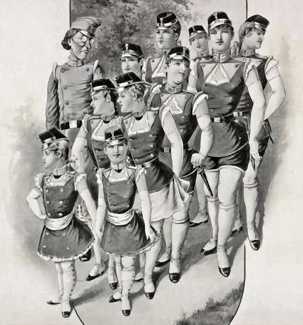
In 1888 he made a trip to Russia and the Caucasus, including Armenia, returning by way of Serbia, Bosnia and Croatia, which at that time were under the control of the Austro-Hungarian Empire. As a result he recognised both the benefits and failings of Russian and Austrian policies in the Balkans, which had succeeded in stemming the worst of Turkish expansionism, but at the expense of ignoring regional demands for self-determination. While Sieben held most of the anti-Turkish views which were widespread at the time, he also had a certain fascination with Austria’s military activities in the regions he had travelled in, and self-published a couple of conflict-related illustration portfolios and a number of prints under the English-sounding pseudonym Archibald Smith.

